#they cannot just have a character who’s so likable and mysterious
Text
Ok so one time I took a nap and had this incredibly vivid dream that I was scrolling through Twitter and GLITCH had posted a teaser image for Episode 6 and it was just a picture of Thad standing in the woods, watching. He stood kinda limp and had the wide DD smile on his face
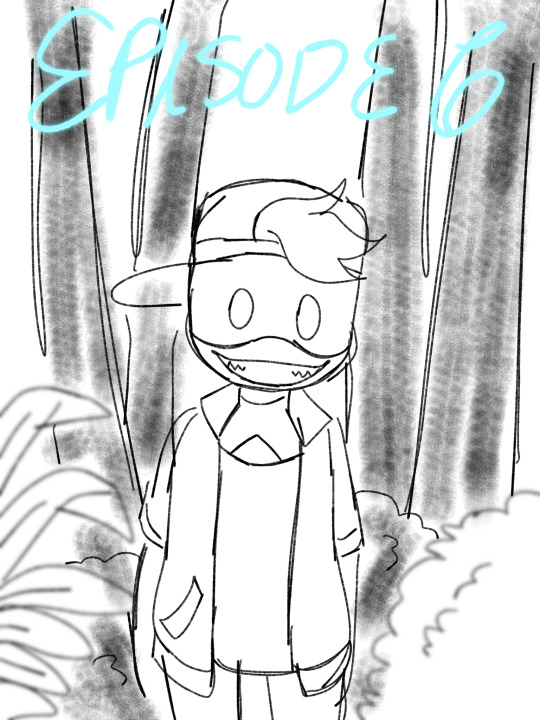
GLITCH please bring my boy back I’m BEGGINGF
#paypurr art#murder drones thad#murder drones#doodle#PLEASE LET THIS BE A PROPHETIC DREAM OMGGGG#We only have until tomorrow#at least I hope#even just a pic of green eyes and I’ll be satisfied#they cannot just have a character who’s so likable and mysterious#and voiced by SEAN CHIPLOCK of all people#and never do anything with him ever#c’mon GLITCH you can’t do this to me#pleasse im begginggggg
93 notes
·
View notes
Text

Gaming Thoughts - August 2023 - Master Detective Archives: Rain Code
I had actually started playing this game when my (delayed) special edition copy came in in July, but a majority of August was also me playing through this game as well and being able to finally finish it and OHHH BOY.
For my piece though, I was tempted to do something that could tap on being a bit spoilery but I decided against that and instead do something like this that could have been interpreted as anything.
Though as for the game itself, god...it is hard for me to talk about anything regarding the plot and story without spoiling something, but let's say there are some twists in it that hit HARD in some points. (One chapter in particular was rife with strong feels)
As for the rest of the game, first off I liked getting lost around exploring through Kanai Ward itself. Sure it just a small general map that you use just to get from story point A to Story point B and there isn't much to it really in regards of places and functionality, the entire place is just absolutely BEAUTIFUL looking through the game and found myself often times stopping to take in the sights a little bit.
The Mystery Labyrinths were where most of the 'game' elements are in. For a while I had once interpreted the initial Nintendo Direct trailer that they were going to be more of an RPG like thing, but they were far from that and were more like the different minigames elements in the Danganronpa games. (IDK why I didn't put that 1 to 1 at the time of the first reveal because I had known from it being from the same creators as DR as well. But oh well.) Either way, they were still enjoyable even for the multitude of quicktime events that there are in points too.
The one drawback that I can say about this game, though, is that it is very easy to find yourself several steps ahead of the game itself. But that is something that I find end up happening rather frequent for me in both DR and also Ace Attorney as well. But I think it kind of relies on you already having figured things of it out too as opposed to it just spelling it out over time.
Also a lot of the characters are likable as well, including the protags Yuma and Shinigami (Also BTW, Shinigami is there in the drawing, I just couldn't figure out where to place her so...you just cannot see her at the moment. XD) But I feel like one of the characters who became my favourite would have to be Vivia, though it is only further emphasized by the chapter that he was more prominent in as well. I wish I would love to get more in depth about that but it does hit spoiler territory.
Either way, if you enjoy the sort of mystery type games though, I would still consider this to be a high recommendation.
19 notes
·
View notes
Text
I want to talk about Knives Out and Glass Onion
Because f**k you, I want to talk about Knives Out and Glass Onion.
I cannot stress enough how much I loved these two movies in the way that they subverted the mystery genre while still playing to its key strengths.
Also...slight spoilers for both? You really can't talk about a mystery without giving away SOME spoilers, mainly because what makes them fun is seeing things with fresh eyes. Sure, if the characters are entertaining enough and the story is just as strong, you'll still have a fun time rewatching it or when you already know all the juicy details. But when it comes to the genre, the real fun comes from seeing what the mystery is and trying to solve it.
But when it comes to Knives Out and Glass Onion, both movies pretty much start out by telling you there is no mystery. At least, not at first.
With Knives Out, we see that someone died, but after some time, we get to see what happens. The truth is told to us and why the character would want to keep it secret, making everyone believe that the actual plot of the movie is about the mystery REMAINING a mystery. But as the story continues, some facts don't add up, and some stones are left unturned. It's then that we realize there IS a mystery. Not about what happened, but HOW it happened. We just weren't looking for it because we assumed that all the evidence was given to us when, in reality, there were clues everywhere, hidden in just plain sight.
Speaking of plain sight, that's what Glass Onion is about. Once again, we're initially told that there is no mystery. But, also once again, not at first. There is something to be solved, but the answer to it is so apparent that even the movie shows you how it happened in plain sight. Not only that but by the second act, we're told that there's another mystery. One that connects to the first by recontextualizing it and by giving new information we missed in the first act. Sure, it involves some retreading, but it's all for the sake of the mystery. I honestly don't think Glass Onion wouldn't have been as engaging the first time if it was plaid out with the audience knowing right away who a certain character was and why our fabulous detective Bennet Blanc was there. It'll be fun a second time now that you already know everything, but to leave an audience to solve a mystery for themselves, you can't give them all the clues at once. You got to take your time, show off the characters, present what they need to know, and when it's time for the big twist, the one that reveals the REAL mystery of the thriller, they'll be engaged now more than ever, and look more for what the big reveal could be. Even though, just like with the first mystery, the reveal is the simplest, easiest answer, and that's the point: We were looking for something complex when the truth was right in front of our eyes this entire time, and we couldn't see it. That is unless you're like me, and Scooby-Doo taught you to always look for the most obvious answer.
Yeah, as much as I adore these mysteries being well-written, I will admit that, almost right away, I knew who the culprit was. In both cases, it really was as obvious as the writers wanted you to think it was, but that's part of what makes Knives Out and Glass Onion so great. They show you the obvious answer but direct you away from it with great plots, better misdirections, and mildly entertaining characters.
Speaking of which, I adore Benet Blanc. You can tell the actor is having the time of his life in this role, and those kinds of performances make a character all the more likable.
And as for the movies themselves, if I had to pick which one I like more, it would be Knives Out. I adore Glass Onion and the message it tells, but Knives Out has a better structure and comedy. In Knives Out, the humor felt natural, whereas Glass Onion seemed to stretch its humor like a bad MCU movie.
Still, I love both of these movies, and if there’s ever a third one, you’d better believe that I’ll keep my eye out for it.
20 notes
·
View notes
Text
the lovely @albonoooo tagged me to share my 10 favorite reads of 2023. oh boy, here we go.
so far i've read 61 books this year (which is below my goal grrr but whatever. when life hits you or something) so it's a tough decision. these are in no particular order:
once there were wolves - charlotte mcconaghy | a really haunting novel set in the scottish highlands revolving around a woman who is working on a project to rewild wolves to the area. the writing is brain-meltingly beautiful. please look up the content warnings tho!
middlegame - seanan mcguire | i do not know how to explain this one except it is absolutely brilliant??? about a boy and a girl with very special talents in language and maths, respectively (and they're not in love!). and like, alchemy and human experimentation. it's very weird but alas, i love weird books
girl, woman, other - bernardine evaristo | a beautifully interwoven story about the lives of twelve black British women (& other) that explores family and love in such a compelling way!!! it certainly didn't win the booker prize without reason
bunny - mona awad | if you like weird things this is the book for you. also if you enjoy unreliable narration, (toxic) female friendships and dark academia. it's a girl's right to be weird and slightly cult-ish
yellowface - r.f. kuang | i cannot make this list without mentioning r.f. kuang bc she is the loml. this book is not my favorite by her but it was certainly a banger, as always. if you're interested in topics of post-colonialism and systemic racism you should never miss out on her books
the deep - solomon rivers | magical alternate history about a mysterious mermaid population in a vaguely post-apocalyptic world. lovely portrayal of culture, (shared) memory and generational trauma
she who became the sun - shelley parker-chan | just another asian-inspired fantasy to add to my list of favorites because i just love them so much. this one was so fun and has queer and nb rep!!!
none of this is serious - catherine prasifka | i didn't really ENJOY reading this bc it kept calling me tf out the whole time. if you, like me, find yourself living in existential dread, the anxiety of a small rabbit being chased by lions, and a crippling social media addiction, this will be a fun one to get through
the raven cycle - maggie stiefvater | i've just finished my THIRD reread of this series in 5 or so odd years. yes it is that good. if you haven't read it GO NOW. it's ya but i promise it's not very ya-ish. paranormal fantasy / magical realism / legends and the most likable cast of characters you will ever see (did you say: where can i find ya books with female mcs that have a personality? the answer is HERE)
her body and other parties - carmen maria machado | i've never really read a short story collection before so this was an interesting experience. i loved some of them more than others but they're def worth a read, some even mind-boggling
sorry for rambling but if you truly expect an english major to not go on a rant about books you've been sorely mistaken
if you ever need book recs please feel free to slide into my inbox/dms i am a walking library
tagging @wanderingblindly @grubbyraccoonhands @drivestraight @maxcuntstappen and whoever wants to do it im not sure who of you reads books besides slurping down fanfic like its melted gummybears so uh.
5 notes
·
View notes
Note
Hello! I finally finished the podcast episode and I really agreed with Grey's point about how the character writing for season 2 is so much worse than bad writing on something like supernatural. Because as someone who is also into bad episodic tv shows the expectations are completely different. Even if a character does something ooc or terrible it could add to the complexity of their character or it can even be completely disregarded or retconned but in a serialized show where you only have six episodes and the whole show functions as a single narrative it just doesn't work.
Do you guys think that this season would have worked better if it was more episodic? Like having a different mystery/flashback every episode slowly building to the big reveal at the end?
Also I don't know if you guys have discussed this on the podcast but was the writing process for this really rushed? Because so much of this season felt like a first draft where they wrote the conclusion first and tried to work backwards from there but even that doesn't make sense because the only real buildup to what Aziraphale does is in the first two minisodes?? It almost makes me want to look at his tumblr but thankfully I have enough self preservation skills to avoid that.
yeah agreed it is six 50-minute long episodes you cannot be inconsistent in there!!!
grey is a big fan of sitcom omens so i think he agrees that it'd be better if it was episodic!
for me, i'm not too sure because i think the mystery itself doesn't have legs. the final ep's Big Reveal to ME is that heaven is planning to redo the apocalypse Right Fucking Now, but crowley doesn't even react to that; she's just curious about why gabriel is anti-apocalypse. the Big Reveal based on what the narrative spends time on and has all the characters gasp about becomes the gabriel/beelzebub reveal, which 1. i don't think is the reason gabriel doesn't want the apocalypse?? he said "instead of armageddon, no armageddon" before they got close??? so what was that shit even 2. is barely even related to why gabriel got mindwiped 3. doesn't answer the "why did you come to my shop?" part of the mystery. and sure, maybe if i cared about b/g At All (sorry to everyone who does like how they were implemented in the show you're all still valid etc etc) and they actually Had 3D Personalities, the way the show clumsily tries to do "you thought it was about Something Terrible coming for everyone, but it was actually about love and being on your own side, and isn't that what a/c are all about?" (at least i THINK that's what they were trying to do?) would hit, but i don't and it doesn't
i've been thinking about what the strengths of s1 are, and i think they're 1. the dynamic between a/c and how very likable they both are 2. aziraphale's pre-ex-christian arc 3. keeping the plot and stakes present throughout 4. having multiple pov characters - even if some of them got tedious, i think the whole "i wish aziraphale and crowley cared about humans more so they seemed more invested in the saving the world angle" doesn't bring s1 down too much because we see the Them and anathema and remember that these are brave and kind ppl who have lives and those lives rlly are at stake
#1 remains in s2, except for some overly corny or self-referential moments. #2 tries to be here but, as you said, it's rlly only the two minisodes that play to it, and maybe the unexpectedness of it in s2e6 is purposeful, but i would have liked to see more! #3 is floppy, limp, flaccid, even. i'm prob just repeating things i've said in recordings already but muriel and heaven pose absolutely no threat! the "fight scenes" when hell finally storms the bookshop are filmed so badly that i never even considered being stressed! the book of life threat, which i thought was the whole motivation behind all of crowley's actions in s2, comes to fruition, and crowley doesn't give a single shit and it's just luck regarding the metatron's timing that saves aziraphale's existence. #4 doesn't happen, which is why we get maggie as thee worst-written character in gomens history. it's a mess!
when you said episodic + revealing pieces of the mystery, though, if i combine that with #4, something i think COULD be fun is a the afterparty s1-esque season. basically, each ep is from a different char's POV and they're all retelling how they experienced the last week using a genre that reflects how they think. the last ep would be gabriel's pov, and we could have a longer b/g flashback series that actually feels believable there and a better explanation of why he and beelzebub are against the apocalypse, OR gabriel is the second-to-last ep so that aziraphale can get ep1 and crowley can get ep6, wherein the final fifteen happens. i'm imagining aziraphale would omit the divorce but the background of his interview would weirdly look a lot like heaven, and then finally in ep6 we cut to sloppy-drunk carly rae jepsen-blasting divorcee anthony j. crowley who fills in that last piece (though you could also swap them around). the other POV-ers would be muriel, shax, and nina (or maggie if you insist). we'd lose "a companion to owls" and some time with our ethereal girlies, but i think it would be worth it.
i actually did not know much about the s2 writing process, but i just searched around and found this post (link) summarizing an interview/con in 2022, and tl;dr, it was rushed, and it sorta WAS written ending-first! neilman pitched the general plot without the ending in august 2019, then partnered with john finnemore and came up with the ending in december 2019, then started writing in summer 2020. filming happened in late 2021-early 2022, so the two of them had ~a year? meanwhile, there's a third draft of gomens s1e1 from 2015 floating around (link), AND a lot of it is straight from a book that 1. terry pratchett was involved in 2. the authors had been trying to adapt basically since 1990. i'm assuming s3 is going to be written on a timeline similar to s2, which is part of why i have low hopes for it, though, if neilman is to be believed, at least the idea for it has been developing for longer than the idea for s2?
- Crystal :)
2 notes
·
View notes
Note
i obviously have to also ask you your hottest btvs/angel takes, bc i am very interested in knowing them
oh boy I really put my foot in my mouth sending you that ask huh haha keep in mind I’ve only been through one watch of each show!!! I got into buffy over the summer and watched angel in the last few months
biggest hot take. spike in seeing red. although like everyone involved regrets it I honestly don’t even think it’s out of character for him to assault buffy. he literally has this obsessive relationship with her where he has this shrine of her things, drawings of her, his buffy sexbot, fantasizes about fucking buffy, and stalks her/breaks into her house. then they do start a volatile sexual relationship that she is literally ashamed over and he gloats about. I really don’t think it’s out of character for a guy with these traits to force said woman into sex no matter how likable you think he is or his "character development." people are upset because it’s a sexual assault scene which is a very real and horrific type of thing to experience (as opposed to in the pack where xander gets all touchy with buffy but it's through a supernatural lens as he was possessed and had this literal animalistic urge), and one from a favorite character.
stemming from above I am so tired of the angel versus spike arguments and how people try to MORALIZE it. they are both bad lol just say you hate angel instead of doing this weird moral superiority thing with spike as if buffy and spike are not known as one of the most toxic fictional couples (which I am obviously not saying you cannot be into such things). I hate seeing people being like "angel is such a creep going after a teenage buffy while spike treats dawn as the kid she is!" like cool buffy and angel and dawn and spike are completely different dynamics because they mean differently to each other. angel is meant to be the older mysterious hot guy buffy falls in love with and I really do not think there's any way to "morally" portray a high schooler with a vampire love interest unless they are the same age, as in the vampire was recently turned. and dawn is buffy's sister of course spike is going to view her that way as buffy is the one he wants. you have to think of what they mean narratively and what the purpose of each character is in the show. also I have seen some people say spike respects buffy more than angel does as if spike doesn't demean buffy especially in regards to her sexuality as he knows that that is an easy way to irritate her and angel. like I literally saw a gifset by a buffy/spike blog that had parallels of angel having doubts about buffy whereas spike was giving compliments being like oh look at how crappy angel is to buffy like I could easily make the same thing about angel being supportive of buffy while spike was demeaning. I will say I do like spike and buffy's interactions on screen together but idk I have just become increasingly irritated on them as a couple but it's mostly because of takes online because I can understand the appeal of them. can you tell that I have the spuffy tag blocked. I have only been into buffy since the summer but I am Done. godspeed to people who have been fans and involved with the fandom for years.
I do not dislike xander as much as everyone else. I know he's very much a "nice guy" but I think it takes a lot for me to not like a character and I do find him likable. he's (initially) a teenage boy and acts like a messy teenage boy who pines after his friend he cannot get. I am also able to understand why he leaves anya at the altar even though it broke my heart- he's afraid they'll become like his parents. I feel that's a very real fear to have! I am also able to identify with him as I have been def been the funny or normie one of a friend group (I would say that now in one of my friend groups I am the "smart" one but like all my friends in middle/ high school were the smart kids lol so I was the shy one) and I struggle a lot with fearing I am not really good at anything like he does
okay for angel's show takes:
I love cordelia and angel’s friendship! I really do but to me (at least on a first watch) it feels like their romantic relationship really hinged on her being thee main female character of the show so they wanted to push a relationship between them. maybe this could change if I were to rewatch angel but I am not totally on board with them as a couple
honestly connor is A Lot but I don't dislike him. I can see why people don't like him and feel he's wishy washy as a character but damn has this kid been through it. I am a sucker for a troubled kid who hates his dad but is literally like his dad as a teen and even more fucked up. stemming off of this I felt like darla's pregnancy has pro-life undertones once they find out that it has a soul which I liked the plotline but I def cannot ignore that aspect of it.
okay god I am going to bring spike up AGAIN but I can definitely see why people think he regresses in character once he comes onto angel because he does, he acts a lot like earlier spike. however it's like. most of that change in character was sparked by buffy and she's not around- why would he act that way when the woman who influenced that isn't around? like people say him going to the strip club is out of character like? he's supposed to be the cool guy who likes earthly pleasures such as eating and fucking. why would he not partake in that just because he has made changes sparked by buffy? also I know he was brought onto the show to help viewership but I do enjoy him and the existential questions he has about being brought back. I also just like angel and spike bickering so I am a fan of him returning to angel after his buffy death because the in-universe reason is not even that bad. it could have been way worse lol
12 notes
·
View notes
Text
My favorite books of 2021
Here it is...my non-exhaustive list of books I loved this year! One thing these books all have in common? Queer characters in prominent roles.
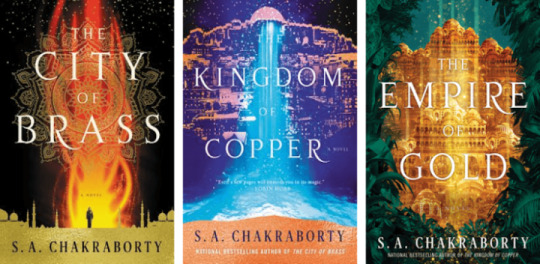
The Daevabad Trilogy (City of Brass; Kingdom of Copper; Empire of Gold) by S.A. Chakraborty
The official blurb for City of Brass:
Nahri has never believed in magic. Certainly, she has power; on the streets of 18th century Cairo, she’s a con woman of unsurpassed talent. But she knows better than anyone that the trade she uses to get by—palm readings, zars, healings—are all tricks, sleights of hand, learned skills; a means to the delightful end of swindling Ottoman nobles.
But when Nahri accidentally summons an equally sly, darkly mysterious djinn warrior to her side during one of her cons, she’s forced to accept that the magical world she thought only existed in childhood stories is real. For the warrior tells her a new tale: across hot, windswept sands teeming with creatures of fire, and rivers where the mythical marid sleep; past ruins of once-magnificent human metropolises, and mountains where the circling hawks are not what they seem, lies Daevabad, the legendary city of brass, a city to which Nahri is irrevocably bound.
In that city, behind gilded brass walls laced with enchantments, behind the six gates of the six djinn tribes, old resentments are simmering. And when Nahri decides to enter this world, she learns that true power is fierce and brutal. That magic cannot shield her from the dangerous web of court politics. That even the cleverest of schemes can have deadly consequences.
After all, there is a reason they say be careful what you wish for...
Why did I like this book: Oh man. Okay. Full disclosure, when I read City of Brass, I was like, this is fine, not amazing, but I’ll pick up the other two in the series because I enjoyed it enough. The world-building is A+, the characters were likable, and I enjoyed the romance.
And then. AND THEN. Kingdom of Copper. Whew, you guys...the intrigue. The politics. The world-building. THE QUEER CHARACTERS. The pining. Where City of Brass is sort of more about the vibes and the road trip, Kingdom of Copper is where it really takes off. All the characters really come into their own. Characters I didn’t care about in City of Brass suddenly became my favorites (I would die for you, Muntadhir). Everyone has complex motives and is tormented by at least three different things.
Empire of Gold is just as good, and it a fantastic wrap-up to the series. I never wanted it to end. Bless the author for releasing bonus material. We stan an author who writes fic of her own work and then releases it for her readers.
I truly cannot recommend this series enough. I gave up on this sort of high fantasy years ago because it’s all the same, but I loved the Islamic setting (it gets billed as Middle Eastern but it’s mostly not set in the technical Middle East...yes I’m being pedantic), I loved the characters, I loved how fresh it felt. I just loved it. So much.
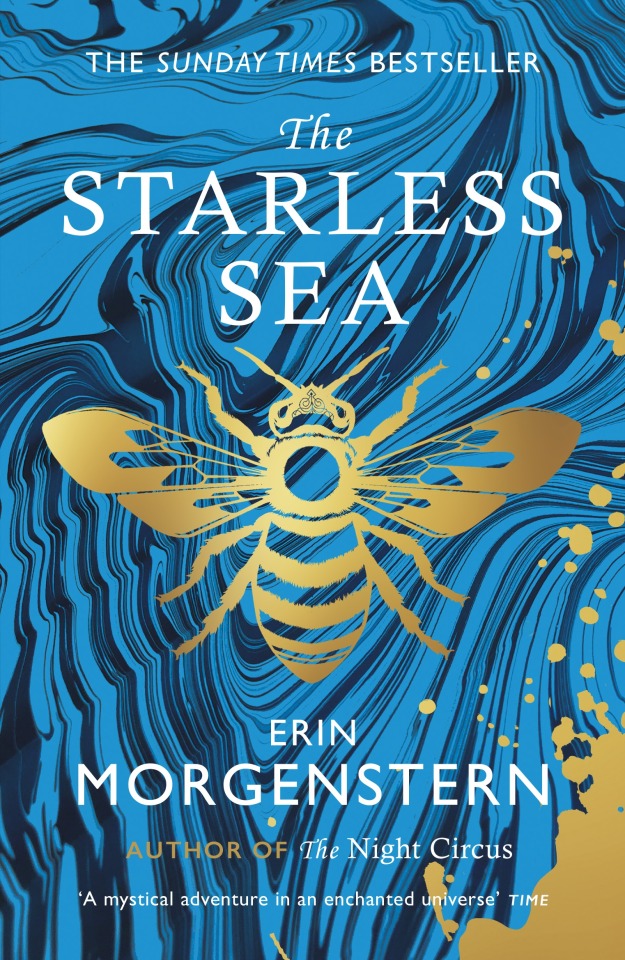
The Starless Sea by Erin Morgenstern
The official blurb:
Zachary Ezra Rawlins is a graduate student in Vermont when he discovers a mysterious book hidden in the stacks. As he turns the pages, entranced by tales of lovelorn prisoners, key collectors, and nameless acolytes, he reads something strange: a story from his own childhood. Bewildered by this inexplicable book and desperate to make sense of how his own life came to be recorded, Zachary uncovers a series of clues—a bee, a key, and a sword—that lead him to a masquerade party in New York, to a secret club, and through a doorway to an ancient library hidden far below the surface of the earth. What Zachary finds in this curious place is more than just a buried home for books and their guardians—it is a place of lost cities and seas, lovers who pass notes under doors and across time, and of stories whispered by the dead. Zachary learns of those who have sacrificed much to protect this realm, relinquishing their sight and their tongues to preserve this archive, and also of those who are intent on its destruction. Together with Mirabel, a fierce, pink-haired protector of the place, and Dorian, a handsome, barefoot man with shifting alliances, Zachary travels the twisting tunnels, darkened stairwells, crowded ballrooms, and sweetly soaked shores of this magical world, discovering his purpose—in both the mysterious book and in his own life.
Why did I like this book: This book is beautiful. This is a book for people who love words and stories. Erin Morgenstern can string the most gorgeous sentences together, and I hate her a little bit for it. Reading it is like...like floating in a pool full of honey while you eat marzipan. Or your decadent sweet of choice, haha.
I love all (or okay...most) of the characters, but my love for Zachary and Dorian is enough to secure this book a spot on my all-time favorite books. I also had no idea this was a queer love story, and god, what a gorgeous love story it is.
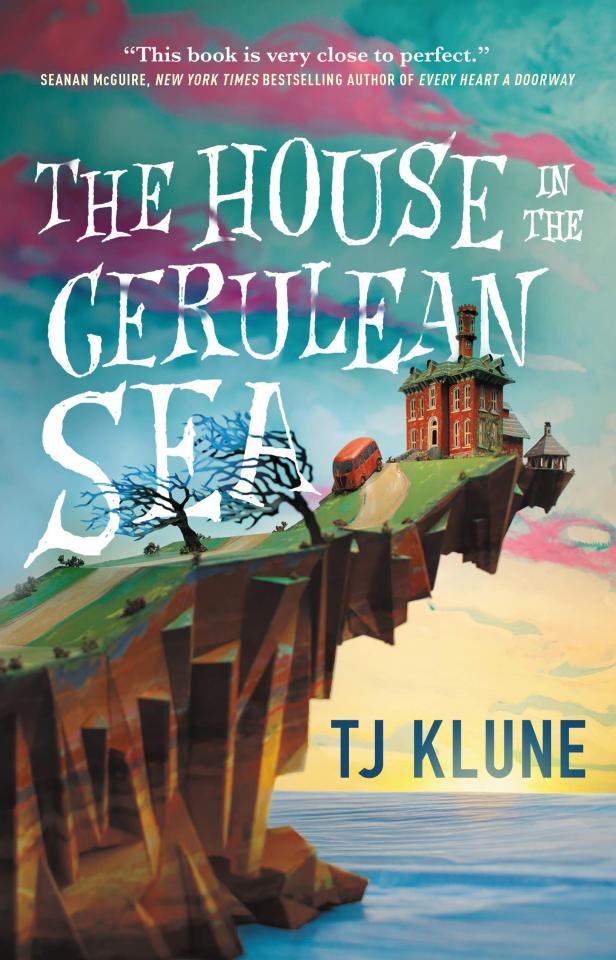
The House in the Cerulean Sea by T.J. Klune
The official blurb:
A magical island. A dangerous task. A burning secret.
Linus Baker leads a quiet, solitary life. At forty, he lives in a tiny house with a devious cat and his old records. As a Case Worker at the Department in Charge Of Magical Youth, he spends his days overseeing the well-being of children in government-sanctioned orphanages.
When Linus is unexpectedly summoned by Extremely Upper Management he's given a curious and highly classified assignment: travel to Marsyas Island Orphanage, where six dangerous children reside: a gnome, a sprite, a wyvern, an unidentifiable green blob, a were-Pomeranian, and the Antichrist. Linus must set aside his fears and determine whether or not they’re likely to bring about the end of days.
But the children aren’t the only secret the island keeps. Their caretaker is the charming and enigmatic Arthur Parnassus, who will do anything to keep his wards safe. As Arthur and Linus grow closer, long-held secrets are exposed, and Linus must make a choice: destroy a home or watch the world burn.
An enchanting story, masterfully told, The House in the Cerulean Sea is about the profound experience of discovering an unlikely family in an unexpected place—and realizing that family is yours.
Why did I like this book: Two middle aged men find themselves and find love with each other? Haha okay take my money. One of the reviews for this book describes it as a ‘big gay blanket’ and honestly, I can’t put it any better than that. There’s nothing complicated in this book and you never have to think too hard, but it’s delightful from beginning to end, and I was screaming for Linus and Arthur to just KISS for the love of god.
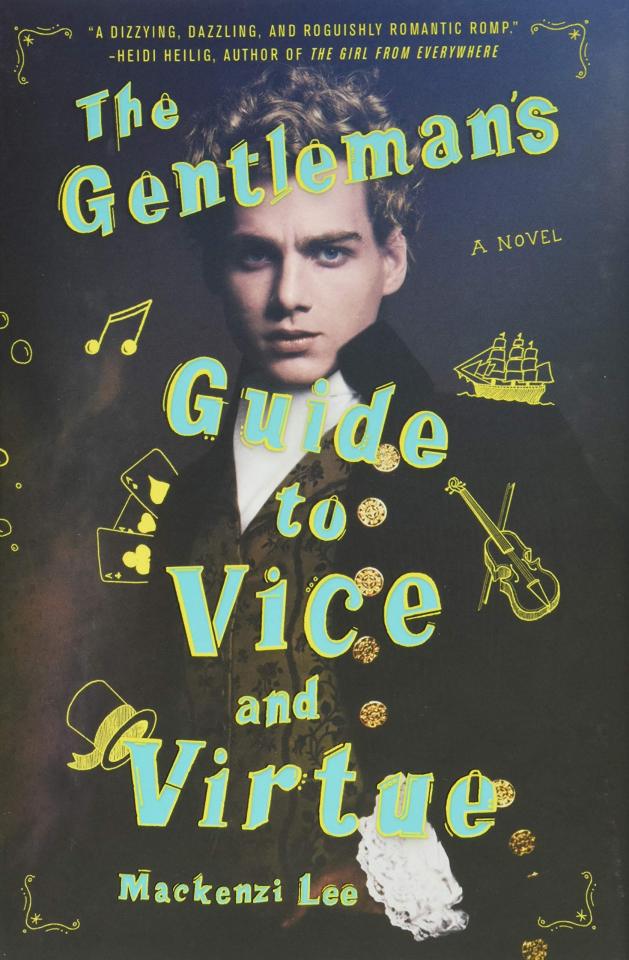
The Gentleman’s Guide to Vice and Virtue by Mackenzi Lee
The official blurb:
Henry “Monty” Montague was born and bred to be a gentleman, but he was never one to be tamed. The finest boarding schools in England and the constant disapproval of his father haven’t been able to curb any of his roguish passions—not for gambling halls, late nights spent with a bottle of spirits, or waking up in the arms of women or men.
But as Monty embarks on his Grand Tour of Europe, his quest for a life filled with pleasure and vice is in danger of coming to an end. Not only does his father expect him to take over the family’s estate upon his return, but Monty is also nursing an impossible crush on his best friend and traveling companion, Percy.
Still it isn’t in Monty’s nature to give up. Even with his younger sister, Felicity, in tow, he vows to make this yearlong escapade one last hedonistic hurrah and flirt with Percy from Paris to Rome. But when one of Monty’s reckless decisions turns their trip abroad into a harrowing manhunt that spans across Europe, it calls into question everything he knows, including his relationship with the boy he adores.
Why did I like this book: Look, I’m still swooning over this book. I’ll never be over Monty and Percy and HOW STUPID they are and the longing and pining and how exquisitely funny and perfect this book was. Monty is exactly the kind of fuck-up I love, Percy is exactly the kind of restrained, patient, quietly-dealing-with-his-own-shit love interest for the fuck-up that I love, and their banter and flirting and friends to lovers journey feels like it was written very specifically for me. This is a romance wrapped in a road trip adventure novel, and you guys, I hate Mackenzi Lee because she not only writes romance perfectly, she also had me laughing out loud as I read this book—and, and, she also writes really beautifully, and you know what, I just wish I was her. Mackenzi Lee, I wish I was you.
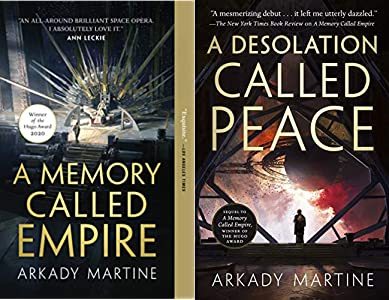
Teixcalaan (A Memory Called Empire; A Desolation Called Peace) by Arkady Martine
The official blurb for A Memory Called Empire:
Ambassador Mahit Dzmare arrives in the center of the multi-system Teixcalaanli Empire only to discover that her predecessor, the previous ambassador from their small but fiercely independent mining Station, has died. But no one will admit that his death wasn't an accident—or that Mahit might be next to die, during a time of political instability in the highest echelons of the imperial court.
Now, Mahit must discover who is behind the murder, rescue herself, and save her Station from Teixcalaan's unceasing expansion—all while navigating an alien culture that is all too seductive, engaging in intrigues of her own, and hiding a deadly technological secret—one that might spell the end of her Station and her way of life—or rescue it from annihilation.
Why did I like this book: Another one where the world-building and the politics is crazy good, and of course, lovable characters that I didn’t want to say good-bye to at the end of the duology. These books play into my very specific interest of passing on and implanting the personality of a dead person into a living person as a means of preserving knowledge. In fact I wondered repeatedly if Arkady Martine is a Weyoun stan.
Also features a queer romance!

Red, White, and Royal Blue by Casey McQuiston
The official blurb:
First Son Alex Claremont-Diaz is the closest thing to a prince this side of the Atlantic. With his intrepid sister and the Veep’s genius granddaughter, they’re the White House Trio, a beautiful millennial marketing strategy for his mother, President Ellen Claremont. International socialite duties do have downsides—namely, when photos of a confrontation with his longtime nemesis Prince Henry at a royal wedding leak to the tabloids and threaten American/British relations. The plan for damage control: staging a fake friendship between the First Son and the Prince.
As President Claremont kicks off her reelection bid, Alex finds himself hurtling into a secret relationship with Henry that could derail the campaign and upend two nations. What is worth the sacrifice? How do you do all the good you can do? And, most importantly, how will history remember you?
Why did I like this book: Look, if you read my writing, you’ve probably figured out that I love romance. I love rom-coms. I’ve never met a contemporary romance novel that I haven’t immensely enjoyed, and even though they usually don’t end up on my favorite books list, I still love the hell out of them. But this book? This book. Maybe it’s because it was the first queer contemporary romance novel I read, but I got to the end of it and was ready to start all over again. I basically bullied my wife into reading it, haha (which can be said for most of the books on this list...still working on getting her to read The Daevabad trilogy).
The characters are just...lovable. Henry is full of anxiety and has been pining for years, Alex discovers he’s bi. The sex is hot. And it (the book, not the sex), was a lot deeper than I thought it would be. It actually had things to say, and I loved that too.
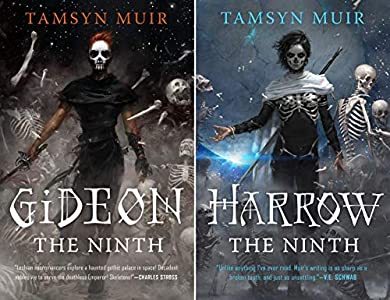
The Locked Tomb (Gideon the Ninth; Harrow the Ninth) by Tamsyn Muir
The Emperor needs necromancers.
The Ninth Necromancer needs a swordswoman.
Gideon has a sword, some dirty magazines, and no more time for undead bullshit.
Brought up by unfriendly, ossifying nuns, ancient retainers, and countless skeletons, Gideon is ready to abandon a life of servitude and an afterlife as a reanimated corpse. She packs up her sword, her shoes, and her dirty magazines, and prepares to launch her daring escape. But her childhood nemesis won't set her free without a service.
Harrowhark Nonagesimus, Reverend Daughter of the Ninth House and bone witch extraordinaire, has been summoned into action. The Emperor has invited the heirs to each of his loyal Houses to a deadly trial of wits and skill. If Harrowhark succeeds she will become an immortal, all-powerful servant of the Resurrection, but no necromancer can ascend without their cavalier. Without Gideon's sword, Harrow will fail, and the Ninth House will die.
Of course, some things are better left dead.
Why did I like this book: Gideon the Ninth reminded me that I love to read (also shoutout to the Broken Earth Trilogy by NK Jemisin, which I did not read in 2021 but helped me along this path). I’ve developed a bad habit in recent years of mostly picking up books secondhand, either at library books sales or thrift shops, and not coincidentally, it seemed that it was almost impossible to find a book that was really, really good. Okay well...yeah, as it turns out, it helps to buy books from bookstores, so your selection isn’t the books people have gotten rid of.
Anyway. Gideon. This book is fun, and pulpy, and full of a huge cast of characters that I actually grew to know and love. The world-building is fantastic, the setting is fantastic. The mystery sucks you in. And Gideon is an endless delight, as is Harrow.
Honorable mentions to American Hippo by Sarah Gailey and A Book of Tongues by Gemma Files
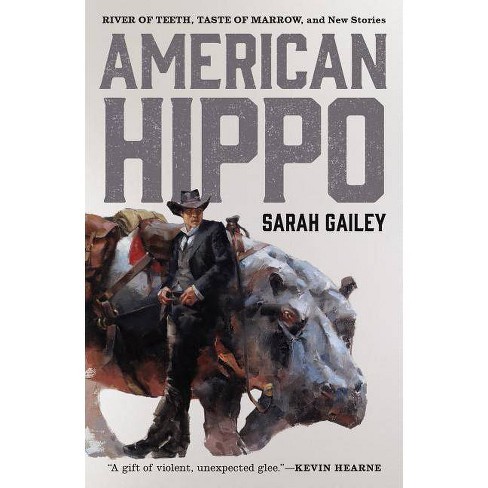
River of Teeth official blurb:
In 2017 Sarah Gailey made their debut with River of Teeth and Taste of Marrow, two action-packed novellas that introduced readers to an alternate America in which hippos rule the colossal swamp that was once the Mississippi River. Now readers have the chance to own both novellas in American Hippo, a single, beautiful volume.
Years ago, in an America that never was, the United States government introduced herds of hippos to the marshlands of Louisiana to be bred and slaughtered as an alternative meat source. This plan failed to take into account some key facts about hippos: they are savage, they are fast, and their jaws can snap a man in two.
By the 1890s, the vast bayou that was once America's greatest waterway belongs to feral hippos, and Winslow Houndstooth has been contracted to take it back. To do so, he will gather a crew of the damnedest cons, outlaws, and assassins to ever ride a hippo. American Hippo is the story of their fortunes, their failures, and his revenge.
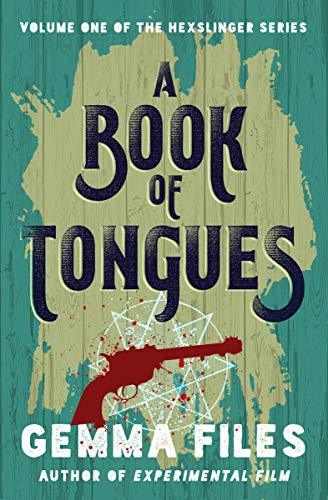
A Book of Tongues official blurb:
Two years after the Civil War, Pinkerton agent Ed Morrow has gone undercover with one of the weird West's most dangerous outlaw gangs-the troop led by "Reverend" Asher Rook, ex-Confederate chaplain turned "hexslinger," and his notorious lieutenant (and lover) Chess Pargeter. Morrow's task: get close enough to map the extent of Rook's power, then bring that knowledge back to help Professor Joachim Asbury unlock the secrets of magic itself.
Magicians, cursed by their gift to a solitary and painful existence, have never been more than a footnote in history. But Rook, driven by desperation, has a plan to shatter the natural law that prevents hexes from cooperation, and change the face of the world-a plan sealed by an unholy marriage-oath with the goddess Ixchel, mother of all hanged men. To accomplish this, he must raise her bloodthirsty pantheon from its collective grave through sacrifice, destruction, and apotheosis.
Caught between a passel of dead gods and monsters, hexes galore, Rook's witchery, and the ruthless calculations of his own masters, Morrow's only real hope of survival lies with the man without whom Rook cannot succeed: Chess Pargeter himself. But Morrow and Chess will have to literally ride through Hell before the truth of Chess's fate comes clear-the doom written for him, and the entire world.
Why did I like these books: Queer cowboys. Beginning and end of story.
#the daevabad trilogy#the starless sea#the house in the cerulean sea#the gentleman's guide to vice and virtue#teixcalaan#red white and royal blue#locked tomb trilogy#american hippo#a book of tongues#reading tag#annual reading wrap up
279 notes
·
View notes
Text
All fans are equal but some are more equal than others. NOT.
There’s been quite a few people in the fandom lately getting very stressed, feeling they’re obligated to constantly be on the defensive re: their fandom choices.
Apparently, whoever has a different opinion about a character or a ship must be said character’s/ship’s stan i.e. overzealous and/or obsessive, i.e. not an objective viewer. Even worse, they must be a dreadful person, who condones a number of moral offences that said character/ship perpetrated (or is thought to have perpetrated). Because, of course, the only acceptable reason for appreciating/enjoying a fictional character or dynamic is their morality. And, by that reasoning, fans who support the correct character/ship must be better fans and better people.
Nothing is more ridiculous than the notion of the objective fan. An “objective” fan is called a “viewer”. You and I, Riverdale friends, we are not just viewers. Otherwise, we wouldn’t have created blogs and dedicated hours of our lives to a fictional couple from an extremely mediocre show. We are still undoubtedly capable of critical thought and objective analysis but we are also aware of our own emotional investment in the show. (Or, at least, one hopes). As a fandom, we engage in activities that exist independently of the show. Fandom is a space of free expression. No one gets to play the higher moral card here. Needing to loudly tell everybody how wrong they are? That’s not the sign of an objective viewer. That’s the sign of a viewer who is also extremely invested, just for different reasons than I am.
Are we seriously holding the morality card over people’s heads for a show that used a poc woman’s pregnancy (Toni) as the means to retroactively establish trauma for a white male (Kevin), all the while touting it in every media possible as a woke response to the BLM movement?!
Are we seriously holding the canon card over people’s heads for a show that treats its 5th(!) season as a tabula rasa?! If the Lodges new backstory in 5x12 shows anything, it’s that s5 is not a time-jump. It’s a reboot.
There are so many people “enlightening” others on their inability to understand canon …
Seriously? That’s the hill you’re willing to die on? Canon Riverdale? You think that people don’t understand what they’re watching? That they’re interpreting canon incorrectly?
No, but seriously: canon for a TV show consists of what the characters say, what the characters do and how the actors portray them. Does this really apply to Riverdale?
Let’s take Donna for example.
Canon explicitly tells us Donna did what she did to avenge her grandmother. At the same time none of her canon actions were against the people who were actually responsible. So, riddle me this, fandom friends: why did Donna do what she did, as per canon?
Let’s try this another way:
Donna is a psycho bitch. Both in terms of Riverdale’s canon (the writers’ intention) and real-life criteria. To create a tag that reads “Bonna for ever uwu!” is deranged.
On the other hand, her character is (like a lot of Riverdale’s characters) an inconsistent caricature. Canon uses ridiculous dialogue and a lot of the Bonna scenes are cartoonishly enemies-to-lovers tropey. To create a tag that reads “Bonna for ever uwu!” is hilarious.
This doesn’t mean that Bonna is a canon couple. It does mean, however, that a Bonna crackship is based on Riverdale’s campy and over-the-top canonic writing.
A viewer who thinks Bonna is disgusting is not more “objective” or more “correct” or more “true to canon” than a viewer who thinks Bonna is funny. Nor are they a better person for it, and this cannot be stressed enough.
Similarly, who is canon Cheryl?
1. Cheryl is an absolute bitch: if a privileged student was calling an actual homeless boy a hobo in your real-life school, you would neither think her a queen nor use “hobo” affectionately in your tags, comments etc.
2. Cheryl is a deeply traumatized person: her father killed her brother, her mother killed half the town and forced her in conversion therapy, she attempted suicide and more.
(Note #1: this more does not mean more than the other Riverdale characters).
(Note #2: nor is it an excuse for her rudeness, affectionately called “mood for chaos” by the writers).
3. Cheryl is also a caricature of the archetypal mean girl who’s there for laughs and meta comments. She’s not to be taken seriously.
4. Cheryl is lgbtq+ representation …
5. … who canonically shits on other lgbtq+ characters.
6. Cheryl is one half of Choni, who are canonically presented as an uber couple.
7. Choni is also, as per canon, a couple with an acute power imbalance (cough!gaslighting!cough) that visually very clearly panders to the male gaze.
But most importantly:
8. Cheryl canonically is not the sum of her parts. The different facets of her character do not intermingle in any meaningful way.
Was Betty kissing Archie specifically a sore spot for Jughead?
Canonically no [2x14]. But, also, canonically yes [5x03, 5x10].
Are there seriously fans that are astonished that Betty is making some highly questionable choices while investigating?! Did they just discover Dark™Betty/Killer Genes Betty? That is canon Betty! Was it ok before because she was then smooching Jughead instead of giving him the cold shoulder? Honestly, the only newly outrageous part of s5Dark™Betty is the fact that she still believes in “killer genes” despite having spent 4 years at Yale …
As for liking/disliking Betty and morality …
Look, I’m going to be very honest: I am NOT particularly enjoying s5 Betty. And it’s not because of b*rchie.
S5 Betty has 99 problems but the sexcapades ain’t one.
For me, it’s the fact that she’s turned into s1 Alice 2.0. But surely that’s not news either? Ever since the first info about the time jump, everyone and their mother have been speculating about the teens becoming their parents …
Just because Jughead is better written (and written to be more likable), it doesn’t make him more worthy of redemption. Just because the writers are keeping Betty’s redemption “secret” (insert eye roll) for their big reveal in the season’s penultimate episode, it doesn’t mean she won’t have one.
Simply put, the writers have made Jughead more likable. He’s still the underdog. He’s the only character in Riverdale actively trying to deal with his trauma, since the very first post-time jump episode (working at Pop’s explicitly to fend off the debt collectors). He has scenes with a new and extremely likable character (Tabitha). He has the only new plot line (the Mothman). Said plotline is narratively already tied to both his unknown past and the town’s destruction by Hiram. His behaviour is explicitly explained, even as his recent trauma remains unknown. He’s transparent.
In comparison, s5 Betty is traumatized but not the underdog. Her trauma (TBK killer) is both known to us and a repetition of previous storylines, which makes it narratively less exciting. She is completely disconnected from any other storylines. She comes out as being judgmental and self-interested: telling Tabitha Jughead’s not her business while previously accepting his help? Berating Polly for lying while not keeping in touch and lying about her own life (TBK)? Please note: I’m not saying there isn’t a reason behind her behaviour, just that it comes out in a negative way.
You don’t like Betty’s current behaviour? You don’t consider trauma a good enough excuse? Cool.
You feel sorry for what she’s going through? You consider trauma to be a valid explanation for her behaviour? Also cool.
Personally, I don’t give a flying fig, either for Betty’s trauma or Jughead’s. Because, even though Trauma™ is s5’s actual mystery plot, narratively speaking, trauma never affected the plot of the past 4 seasons, nor s5 trauma will affect future plots, once revealed. And you know what? That is also cool.
None of the above is better.
And just because I’m not enjoying Betty right now, it doesn’t mean that I don’t want her to overcome her current situation or that I won’t cheer for Bughead like a River Vixen on fizzle rocks, once they reunite.
This thing though, where people are made to feel as if they owed anyone in the fandom an explanation about why they like the things they like, because, somehow, their preferences are a reflection on their character or their cognitive abilities to read a TV show? This is a joke.
There is no “wrong” way to consume any show, let alone Riverdale, with its fractured format, its short-term memory and its see-sawing characters.
Look, everybody’s here for their own reasons. For most people this is a place of escape. No one’s escaping better than the other, because of how they enjoy their teen TV show ...
56 notes
·
View notes
Note
Perfect timing for me to ask you this: what's your thoughts/opinions on Deacon?
It's always a good time to ask me to tl;dr, friendo, I love never shutting up, ever.
Ah, Deacon. The man of mystery, the liar, the Railroad's number one agent (though he'd rather you not believe it.) Everybody's favorite egg in shades. I really like Deacon. He's hilarious, handy in a fight, his voice acting is phenomenally fun, and has a lot of wise things to say about the lies people tell you to make you act in their interest.
Of course, Deacon's main character trait and personality is that he lies constantly. He is, admirably, upfront about the fact that he's a liar, and doesn't expect anyone to trust him. Sometimes his lies are clearly meant to be a joke. Sometimes they're a test, to teach the Sole Survivor a lesson about spycraft. But when it comes down to it, Deacon doesn't lie about important things, or things that will get someone in danger. He lies, with varying degrees of believability, so that when he *needs* to lie, nobody will know whether or not to believe him. He disguises himself, often poorly, so that when he *needs* to disappear, nobody will spot him.
But the thing Deacon lies about the most is himself. As with all the Railroad agents, his name is a pseudonym. He lies about being a synth (he isn't) and going places and seeing things. He lies about escapades he's been on and missions he's run. Even his appearance is a lie, as he admits he undergoes surgeries to change his face every so often. Every one of his affinity conversations ends with a charisma check revealing that he was lying.
And lies are all that you get from Deacon, until you reach his final affinity conversation. There, Deacon, unusually emotional and distraught, confesses that in his youth, he was a member of a gang called the University Point Deathclaws-- a hate group that targeted synths. After a particularly brutal murder turned Deacon away from the gang, he met and married a woman named Barbara. But years later, his old gang showed up at their doorstep and murdered Barbara-- as it turned out, Barbara was unknowingly a synth. Deacon proceeded to butcher every one of his former friends-- and impressed by his prowess and believing him to be sympathetic to the cause, he was then recruited by the Railroad.
If you believe that this story, too, is a lie, then we're left scraping for a motive or a baseline or just, anything we can actually use to pin Deacon down as more than a fleeting shadow.
People much more eloquent than me have dissected this reveal and all of their points are good and sourced, and they will do a much better job of it than I could, but in short, I do believe Deacon is telling the truth about his past. Everything from the acting to the expressions on his face to terrible things he confesses about himself point to real, genuine heartache under his usual glibness, and it also provides us a motive, one magical golden key that unlocks the most important facet of Deacon:
This man hates himself.
Deacon absolutely fucking hates himself. He hates his past, he hates his choices, he hates how he used to behave and believe, he hates what it did to the woman he loved. He views his service to the Railroad as atonement, that he also doesn't deserve and never will. Not only does the Railroad necessitate secrecy, making up lies, changing his face, turning himself into a mystery, but it also allows Deacon to pretend to be anybody else but himself (as MacCready ice burns him in one of their exchanges.) He fears that if anyone finds out the truth about him, spots even a small sliver of his real self, they will hate him as much as Deacon does. And he'll deserve it. The only future Deacon sees for himself is to die in service of the Railroad, in service of freeing the synths that he used to hate and victimize, in service of an organization he feels he's completely unworthy of belonging to.
This, I'm sorry to say to his fans, is the actual characterization/meta reason why Deacon isn't romanceable. Deacon hates himself so much that he's unwilling to let anyone know who he really is. He only barely feels comfortable exposing part of his past to the Sole Survivor at the end of the affinity conversations-- a romance would require letting someone in further than that, and Deacon not only refuses, but feels like he doesn't deserve it. Like, I cannot stress enough that in a canon full of companions struggling with self-image and varying degrees of hating themselves, Deacon is the undisputed Grand Champion of hating himself. He has a LONG way to go to finding even the slightest bit of worthiness in himself.
And that's really the sad and poignant part of Deacon. We can believe Deacon is a fun and likable guy with good intentions and a good cause. We can believe that a person can change at heart, can try to make up for their mistakes by doing good things. (I believe it!) But the tricky part is making Deacon believe it-- a man so thoroughly sunk in his own self-hatred that he truly doesn't believe he deserves to be forgiven.
Well, that was kind of a downer, so I'll rattle off some other fun facts about Deacon to close this out...
Deacon seems to be very well-read, with an interest in pre-War literature. OR MAYBE HE'S LYING?!
He is, however, very likely the same person as John D., a Railroad agent mentioned in Desdemona's terminal who came up with the dead drop system, the pyramid structure of secrecy, was the only survivor of an earlier Institute raid on Railroad HQ, and was also instrumental in rebuilding the organization. This raid took place in 2266, over 20 years before the game starts, so it's actually very likely that Deacon is in his 40s or even his 50s.
We all know Deacon (poorly) follows Sole through the early parts of the main quest, but he's been following them a lot longer than that. Deacon discovered the Institute's apparent interest in Vault 111 and theorized there was something inside that they wanted. This led Deacon to stakeout Vault 111, where he apparently sat and watched the doors for some time until the Sole Survivor emerged. (You can find his spot in the trees on a hillside overlooking the Vault doors. There's a chair, a few bottles of water, a sun shade, and the Railsign for "ally" carved nearby.)
And stolen verbatim from the wiki:
At one point in 2275, Deacon was kicked out of HQ by former leader Pinky Thompson because he was "sick of the lying, face-changing son of a bitch," after Deacon had spent a month as a ghoul, which "freaked a lot of people out."
#gg answers#fallout 4#fallout meta#deacon#fallout railroad#poor deacon#i hope his past story is true because i like the themes that people can change and do better#and also if it's not then we just have nothing to work with#but deacon would want it that way#sighs loudly
97 notes
·
View notes
Text
You know what? I wanna talk about “spoiler culture” for a second. This idea that studios (y’all know which ones I mean) have to swear their actors to secrecy or withhold parts of the script from them, etc. so that NOTHING WILL BE LEAKED BEFORE THE RELEASE. Which is also tied to the idea that dramas have to be full of SURPRISE PLOT TWISTS that the audience CANNOT POSSIBLY SEE COMING ... to the detriment of, y’know, the actual quality of the show
Anyway.
I went to see a production of Shakespeare’s King Henry VI recently. Have I seen this play before? No. Am I at least vaguely familiar with the characters in it? Some better than others, but I’m not an expert on the War of the Roses. There’s still plenty of mystery in there that I needed the actors to reveal. But there’s one character in the first part of that show that I do actually know a good deal about.
And that is Joan of Arc.
Joan showed up and I immediately got who she was based on context clues. And I understood her relation to the plot because I know about Joan of Arc as a historical person. A French soldier came in and announced that they were going to lose Orleans, and that provided me with the context of where in the war they were. That allowed me to be REALLY EXCITED about what Joan was gonna do next, because I knew what she was going to do, and I knew it was going to be spectacular.
(And it was. And the actress did it very well.)
Now. This is the Hundred Years War. This is history. Moreover, this is a history play written by an Englishman, in which all of the main characters are English nobility. Which means that, going into it, I knew Joan of Arc was eventually going to die, and I knew HOW she was going to die. Did that spoil the play for me? Not at all! Because the actors made it enjoyable to watch, because they understood their characters, and even though I knew what was coming, there was still a level of suspense because the battle scenes were finely crafted and well executed. The actress made me care about Joan, because her Joan was likable, and the choreographer made me sit on the edge of my seat during the battle scenes because I wasn’t sure how long they were going to drag it out before she’s captured. I was waiting for the inevitable with bated breath, and still rooting for Joan to win, even though I knew she wouldn’t.
Because That! Is what happens! When you are watching a good show and you are invested in the characters!!
Now, this was a history play, so obviously the plot is already known. And the plots to Shakespeare’s other works are pretty well known too (I mean, Romeo and Juliet tells you at the beginning that they’re both gonna end up kicking it!) But even if something is new and fictional, there’s a possibility that the audience will be able to see a certain end result coming through context clues and foreshadowing and reasonable determination.
And if they’re excited about that end result? If they want to see it play out? THAT’S A GOOD THING! That means you wrote a compelling story!
Don’t get all caught up in this “no one can know what’s coming” bullshit, because it’s boring and it leads to movies with no passion in them, actors who don’t understand their characters place in the story because they literally don’t know the story, and “plot twists” that just completely make no sense and leave the audience dissatisfied and a little betrayed.
Don’t betray your audience, writers. It’s just... not good writing. Don’t do it.
And scene.
6 notes
·
View notes
Text
Anime Micro-Reviews
Short reviews of three shows with ~12 episodes each
Death Parade
There is a place after death that’s neither heaven nor hell—a bar that serves you one chance to win. You cannot leave until the game is over, and when it is your life may be, too.
While people play games, the bartender—actually an arbiter in charge of deciding souls’ fates—will observe their true nature.
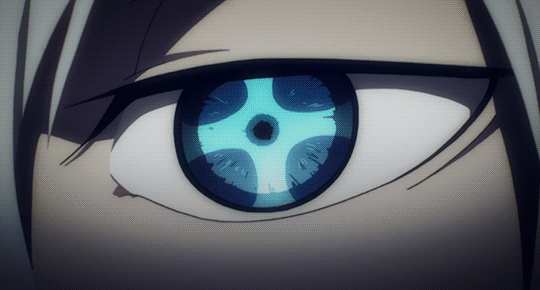
Mysterious, otherworldly setting disguised as a friendly spot where people who don’t yet know they’re dead go to be secretly judged? Sure! I enjoyed the show, especially how, as it went on, it introduced doubt that any human’s complexities and motivations could be easily categorized into black-and-white categories just based on outside observations.
I also like the premise of the otherworldly bar. Creepy, mysterious, an easy hook for me. Also, the opening theme is a bop.
As it continues, the show invites the viewer to judge not just the souls, but the bureaucracy of the death game/judgement/arbiter system. The arbiters aren’t human, and free of human emotions they are impartial judges...right? Or does the lack of emotion impede their understanding of actions in the first place?
English Dub? Yes
Where to Watch (USA, as of April 2021): Hulu (sub), Funimation (sub and dub), DVD
Eden of the East
Akira Takizawa wakes up naked outside the White House with no memories. He’s got a gun and a cell phone. He doesn’t remember the phone gives him access to ten billion yen and a woman who will grant any request. He doesn’t even remember he’s supposed to save Japan and will be murdered if he fails. Whatever he’s tangled up in, Takizawa’s in deep—and that’s not even scratching the surface.
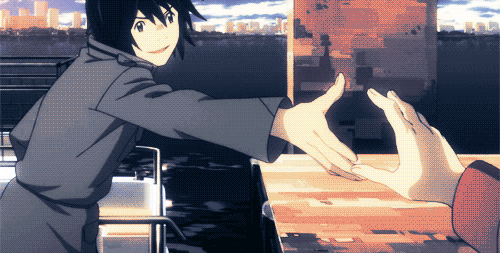
A solid show that keeps you coming back for answers, Eden of the East--which is hard to sum up in a single gif--hits the ground running as recent college grad Saki, sightseeing in the US, gets tangled up with a charming guy who is naked, armed, trying to avoid the cops because of that, and amnesiac.
Despite *gestures* all that, it’s a pretty deliberately-paced show, rather than a thriller. Fairly quickly we learn that Akira is one of 12 people given a ton of money and a mission to “save Japan” however they see fit in a sort of game...which might be good deeds, or might be terrorism.
The characters are likable, and every episode gives you just a little more information, letting you untangle the mysteries at the same time as the characters. The 11-episode series completes the main arc, but leaves the completion of the game for the two additional movies (I assume; I haven’t seen them yet).
English Dub? Yes
Where to Watch (USA, as of April 2021): Hulu (sub), Funimation (sub and dub, also both movies), Tubi (sub), DVD
91 Days
During the Prohibition era, in the town of Lawless the mafia rule the streets, and the illegally-made liquor flows freely. After a mafia dispute ended in the murder of his family, Bruno Avilio went into hiding. Years later, a mysterious letter with the names of the murderers prompts him to return, infiltrating the the ruling mob family and befriending the don’s son as he plans vengeance. Killing brings more killing, and revenge spawns more revenge. How will the 91-day story of these men guided by a tragic fate end?

I saw this being recommended a lot to people who wanted something after Bungo Stray Dogs, a show I adored, so I gave it a shot. And while it’s really good, it makes me wonder what those original recommenders liked about BSD because...the main thing these shows have in common are the gangs and gunfight aspects. They’ve got completely different tones and I think each would appeal to its audience for different reasons.
91 Days seems to me like the type of show you’d recommend someone who doesn’t normally like anime (maybe along with titles like Cowboy Bebop or Death Note). It’s dark, the story of a young man’s quest for revenge on the gangsters that murdered his family, and what he’ll sacrifice to get it. Set outside Prohibition Chicago, there’s booze, turf wars, plotting, double crossing, shootouts and scheming; Anime News Network called it “an Alexandre Dumas-style tale of revenge.”
Impressively, the historical setting feels authentic. The Prohibition setting isn’t just for aesthetic: from the sound effects to the cars and even store prices, it really feels like they did their research.
English Dub? Yes, and it’s pretty good, although I was surprised at first because I’m unfamiliar with Chicago accents, but it ended up being really interesting, and adding to the sense of its time and place.
Where to Watch (USA, as of April 2021): Crunchyroll (sub and dub), HBO Max (sub and dub), BR/DVD
Click my “reviews” tag below or search “review” on my blog to find more!
#Death Parade#Eden of the East#Higashi no Eden#91 Days#reviews#recommendation#anime#let's just say if you're looking for the fun-and-humor aspects of BSD you will NOT find them in 91D#it's a really impressive show#but I think I've learned that I *personally* do not enjoy action-drama-serious shows as much as comedies#surprised I don't hear much about it tho since it seems *perfect* for the 'want a serious show w/plot' &/or 'not normally into anime' crowds
84 notes
·
View notes
Text
One Year On: Life is Strange 2 Critique
December 3rd, 2020 marks a year since Life is Strange 2 ended. I was inspired by @smitethepatriarchy‘s text posts (here, but there are several other answered asks worth reading) and @suhaplays’s text post (here) criticizing Life is Strange 2 to write a critique about how Life is Strange 2 handled certain themes and social issues.
(tw: gun violence, police brutality, animal death, incarceration, racism. In this essay, I use the word “queer” in a reclaimed sense, as a queer person myself. Of course, spoiler warning for all five episodes of Life is Strange 1 and 2).
A year on, my feelings about this game have soured... a lot. When the game was first announced, I was overjoyed that our new protagonists would be two Latino boys. Finally, we would have a culturally meaningful, groundbreaking video game with people of color and their experiences at the forefront!
Then the game was met with immediate backlash and I utterly exhausted myself defending it for weeks on Reddit and Tumblr. Throughout 2019, as the episodes came out I became increasingly disillusioned, frustrated, and disappointed with where the story was going. I couldn’t figure out why I felt so damn miserable while playing this game.
Then in the summer of 2020, when Tell Me Why began rolling out pre-release material, I noticed that they posted a Q&A about transphobia, gave content warnings, and discussed at length about their collaboration with GLAAD, Checkpoint, and the Huna Heritage Foundation to make the game with sensitivity and proper research. I cannot speak for trans and gender non-conforming people on whether Dontnod succeeded at doing so with Tell Me Why. But Life is Strange 2 did… none of that.
Essentially, I realized that the reason why I was so frustrated with LiS2 is because it focuses way too heavily on a trauma narrative. This comes off as insensitive to players of color without any content warnings or extensive research.
Sean didn’t have to get kidnapped, kicked in the face, and called a racial slur by a gas station owner. Daniel did not need to watch his puppy get mauled by a mountain lion for the sake of a “difficult choice.” Sean didn’t have to lose his eye for the sake of heightened drama. Sean didn’t need to get called a racial slur and humiliated by his native language/beaten in the desert for refusing to sing. Daniel didn’t need to get shot— twice. Hell, all of “Faith” probably could’ve been cut— how is a church cult that brainwashes Daniel and beats Sean half to death relevant at all to the story?
Even if not all of the game’s violence was racially motivated, the consistent trauma that Sean and Daniel endure does not make for positive representation— or even good characterization. There is a difference between sympathetic characters and well-written characters, and trauma does not make Sean and Daniel any more complex or likable-- just more fucking traumatized.
LiS2 is more grounded in reality, but that also makes plot holes that much harder to excuse (Daniel’s powers being spotted, most of the Parting Ways ending, Sean’s prison sentence). But most of all, it grounds all of Sean and Daniel’s pain and trauma in reality.
There is no magicking away a town-destroying storm with time travel. Sean can’t keep his dad alive by ripping up a Polaroid. After Max unlocked her powers, she was still a Blackwell student, reconnecting with Chloe, taking photos, saving lives, and uncovering a murder mystery. After Daniel unlocked his powers, the Diaz brothers lost everything.
The game never lets you forget that Sean and Daniel are homeless, wanted, constantly in danger, and that they are never getting their old lives back. It permeates the entire game, and for players of color, just reinforces a sad, miserable, grim reality about living in the United States. It is, as @smitethepatriarchy said, potentially triggering for players of color, and it is certainly not something I needed to be reminded of.
And the representation of POC? It feels shallow and ill-researched. It would only take a Google search to find out that Dia de Muertos (a holiday to honor the dead, no less) was from October 31 to November 2 in 2016, the year the game takes place, but Daniel only talks about Halloween in episode 1. Sean and Daniel never discuss any Mexican customs, foods, or holidays. Sean doesn’t speak Spanish with his immigrant father, only during a scene when he’s traumatized (again!) by two racists, and again when talking to Mexican immigrants— in jail. Daniel doesn’t speak Spanish at all. Most of their allies throughout the game are white, including Finn and Cassidy, who appropriate Black culture with their dreadlocks.
So what’s left? Sean and Daniel’s existence as people of color is, at worst, just a narrative prop to justify everything that happens to them. They are people of color on the surface only. In a meta-sense, the game only considers the color of their skin and their last names as what is narratively important… yikes.
I don’t have anything against people who genuinely loved the game and were moved by its messages and story. But I can’t help but feel bitter that white players have the luxury of only thinking of this game as a work of fiction and not feeling any personal reliability to Sean and Daniel’s racialized trauma.
I don’t regret playing LiS2, but I do regret all the time and energy I spent defending it in the beginning. I understand now that I shouldn’t let people’s opinions get to me, nor should I feel obligated to like or defend a game for its attempts at representation. But now, I think I understand how queer fans must have felt in late 2015 when Polarized released. After following the game for 10 months, to see that Chloe’s ultimate destiny was to die and Pricefield is another ship plagued by the Bury Your Gays trope (in the ending that the devs clearly put more work into) must have been just as disillusioning and infuriating. I understand why some fans were so quick to unfollow LiS or develop mixed feelings about the series, because that’s how I feel too after following LiS2’s development from September 2018 to December 2019.
Before I end, I will admit that Life is Strange 2 arrived at a time when I needed it. I still stand by my belief that DN did a great job characterizing Sean, Daniel, and Chris without toxic masculinity, which is the best thing they could’ve done for a male-focused follow-up to a game about queer women. I love that Sean is still a canonically bisexual man of color in a major video game and that DN didn’t forget their queer audience. I love the world and characters that DN built, but I still prefer AU fanfictions of their normal lives, without all that trauma.
So, I will continue to treasure Lyla and her 10 minutes of screentime (aka the only shred of Asian American representation I can get from this series). I still reblog LiS2 fanart to support the artists. I still support Dontnod, because as Tell Me Why has shown, they are capable of researching and writing stories with more sensitivity. And let’s be honest-- I’m still gonna be hella excited if Life is Strange 3 is announced.
But so many aspects of Life is Strange 2 were bungled that it came off as a remarkably average and forgettable experience. A year on, I don’t hate Life is Strange 2, but I am writing this to move on from it.
Thank you for reading.
#life is strange 2#life is strange#lis#lis2#lis 2#lis2 critique#pricefield#racism#sean diaz#daniel diaz#diaz brothers#sinn#fean#finn#lis finn#finn mcnamara#chloe price#max caulfield#lyla park#lis sean#lis2 finn#lis2 sean#lylapark#lis2 daniel#lis daniel#dontnod#dontnod entertainment#square enix#bury your gays#trauma
169 notes
·
View notes
Note
I love Shoto and Dabi as well. I think though what makes Dabi a bit more interesting for me is that you can really dissect his character because he was such a mystery for so long. Shoto on the other hand is what you see is pretty much what you get. There's some great Shoto meta out there but there's even better Dabi meta and it often varies depending on who it is.
I agree!
Shouto is a great and super likable character, but the problem is that there is a lot of hidden potential that I’m sure he won’t unlock for quite some time. As of right now, he hasn’t fully understood that he, too, is a victim. His hatred for Endvr pretty much stems from how Endvr treated Rei and Shouto even apologized to Rei when they saw each other again. He understands that he was similar to how Dabi is now in terms of that hatred, but he hasn’t yet acknowledged that Endvr has wronged him too. So what would be really interesting, would be to see him understand that he’s a victim too and that he is allowed to be angry for his own sake and not just because Endvr hurt people Shouto cares about. But I don’t see that happening yet. Rather, that’s probably going to be something that will happen while trying to save Dabi.
Also, as much as I love Shouto, the story constantly leaves him out. I know most people view him as part of the next big three and he’s obviously being promoted as such (especially with the three musketeers), but because he doesn’t/didn’t know about the OFA thing, he more or less had to be excluded and honestly, that’s fine because I would prefer him to just have his own storyline, BUT he’s kinda also being left out of his own family plotline now since it feels like it’s all about Endvr now?
Idk, I was really excited to see how Shouto would try to save Dabi, and now that the whole family (and Hawks and Jeanist?????) are involved, it feels like he’s once again going to be more of an accessory to that too, which is disappointing. If it was just him (or maybe him and Natsuo) that would try and save Dabi, then he could have gotten a lot more focus and far more character development, but now I’m honestly not sure that will happen until the very end (when the actual saving is happening since Endvr definitely cannot do that).
29 notes
·
View notes
Link
This is an area where the urban fantasy, the magic realism, of Disco Elysium meets squarely with the pavement of actual policing. “The police represent the most direct means by which the state imposes its will on the citizenry,” writes anarchist historian Kristian Williams. “When persuasion, indoctrination, moral pressure, and incentive measures all fail–there are the police. In the field of social control, police are specialists in violence. They are armed, trained, and authorized to use force. With varying degrees of subtlety, this colors their every action. […] Violence, as well as the law, is what they represent.”[1]
The fact of Harry DuBois’s copitude colors the game for me – or rather, it draws the color out of the surrounding, much more interesting items within the game. “Don’t be afraid to get weird,” a loading screen tells me (or something to this effect). “People let people in power be weird!” Except you and I both know that nobody is just “letting” this cop be weird. Rather, the cop is forcing his weird shit on people under the implied threat of death if they say or do the wrong thing to him.
And here’s one of those cop drama tropes I talked about earlier rearing its ugly head: we’re reassured early on that Harry is “one of the good ones,” having solved a high volume of cases over a long career and only actually killing three people in his life. We’re supposed to breathe a sigh of relief that we can ethically play the cop game, but my only reaction was one of horror that other cops in this police agency apparently are so trigger-happy with reckless abandon, they roam the streets looking for suspect-victims to shoot dead over solving their backlog of cases. The fact we marvel at how low Harry’s body count is instead of going “wait what the fuck why do you have a body count at all” is telling.
But the absolute open-ended nature of the stat system means you could, theoretically of course, haha the devs read Marx so you know it’s all just in good fun and absolutely critical of the police, turn Harrier DuBois, Ltn. double-yfreitor of the RCM, into a full on fascist meathead for real – a racist, violent, nationalist authoritarian pig-for-brains who beats people up, threatens to shoot them, punches holes through walls and doors, and makes life for those around him basically unlivable (even more-so than he already does).
In the real world, in 2021 America, cops are also making it clear how unnecessary they are and how much better off we’d all be if they stopped existing. And no matter how intense the copaganda gets – no matter how many narratives of messy cops with hearts of gold we get – we cannot turn away from the reality that the only purpose police serve today is as a violent tool of social control, and it is clear what – and who – they are tasked with controlling. Defunding the police will not work. Limiting their power and scope will not work. In Portland, where police defunding and redistribution of tasks did happen, the dispatchers sending non-police crisis response teams on jobs are part of the police union, and it turns out they were actively sabotaging the non-police teams. Reducing their ability to do harm does not change their mission, which inherently includes the latitude to do harm.
When you step outside of the boundaries of “cop” in Disco Elysium, a mysterious and beautiful world of possibility and danger opens up. The game’s world is full of weird religious doctrines and political ideologies and scientific marvels to explore and discover. Every character is fascinating, even if only a few are really all that likable. I’d love to play a version of this game where instead of a cop we were a private investigator, or a journalist, or a field medic, or hell, one of the Débardeurs.
Maybe one day, that version of this game will arrive.
And as for what we should do with the real police in the mean time?
Abolish them.
We’ll be a safer, happier and much more flourishing society when we do.
15 notes
·
View notes
Note
Hey there! Looking for recommendations. What less popular series are you reading in jump?
hey there! in terms of less popular/newish series in jump, here’s what i’m currently reading:
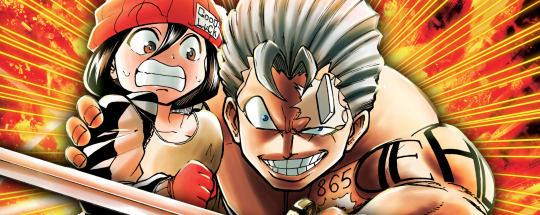
undead unluck
i was put off initially because one of the first promo images for this series was a dude groping a girl’s tits but if you can overlook that in the first chapter it’s genuinely a wonderful series with a lot of cool worldbuilding and extremely likable characters. maybe one of the most unique series in jump right now. also the author is a self-professed togashi fanboy and was highly inspired by hxh so hxh fans would probably enjoy it.
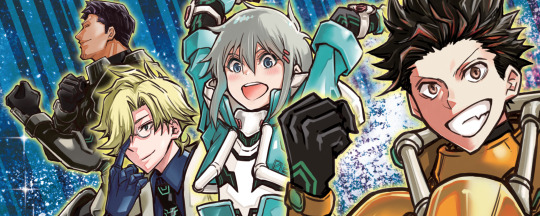
agravity boys
a gag series about four stupid boys stuck in space who are a source of amusement for a mysterious all-powerful being (and then later four more stupid boys show up). i think the comedy is very much your-mileage-may-vary and perhaps my taste is just trashy but i’ve genuinely laughed out loud at this series on multiple occasions and will be devastated if jump axes it. (at times it can also be unexpectedly wholesome.)
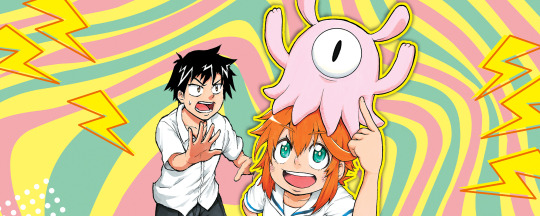
magu-chan: god of destruction
magu-chan is a wholesome gag/slice of life series about a girl who accidentally unseals a tiny cthulhu-like creature named magu and the hijinks that follow as they live together. i really cannot stress how wholesome this series is, i love it so much.
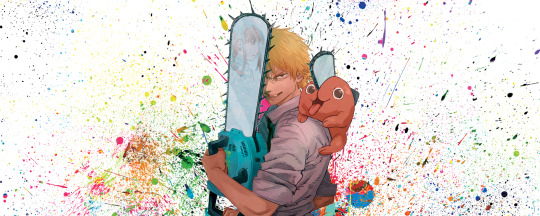
chainsaw man
technically this series is extremely popular for something running in jump that doesn’t have an anime yet so maybe it doesn’t belong in this list but wanted to mention it anyway. it’s a dark action series with a lot of gore and generally gross things but i’ve found it really compelling. some people describe it as a “spectacle” more than anything else and honestly that’s accurate. anyway it seems to be ending very soon and people think an anime announcement is inevitable so you might be seeing more about this series in the near future.
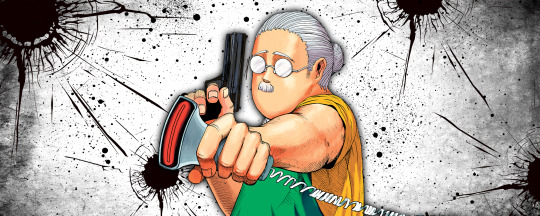
sakamoto days
this literally just debuted in jump and only has two chapters but i think it’s very promising. it’s about an ex-hitman who runs a convenience store with his wife. seems like it’ll be action/comedy and i’m excited to read more.
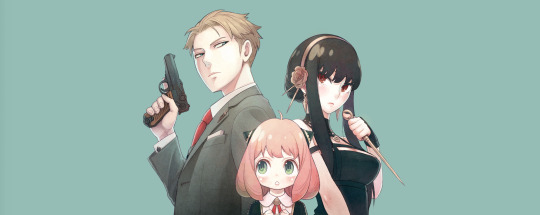
bonus: spy x family
technically this isn’t run in weekly shonen jump but instead on jump+ but it’s also become a big success despite not having an anime yet either (it’s still pretty new so probably not enough material to cover right now). it’s a comedy series about a fake family unit composed of a spy, an assassin, and an esper. genuinely hilarious, i just wish this one minor character in it wasn’t in love with his sister. oh well, we can’t have it all.
(also jujutsu kaisen just got an anime and i guess qualifies as “popular” now but i would feel weird excluding it so shoutout to jjk)
#ask#anonymous#i've only read a couple chapters of mashle but that seems like it's becoming popular now#edit: added images for fun
63 notes
·
View notes
Text
The Dos and Don’ts of Writing Smart Characters
Since I started this blog, one of the most common questions I’ve received has to do with the portrayal of intelligent characters. This is also one of the most difficult to answer -- excluding questions about characters with specialized knowledge sets, which are fairly easy to answer with source compilations. Most of the questions have to do with: how do you portray a smart character believably? How do you make the audience relate to them? Can I still make them likable? How do I avoid the pitfalls of popular media?
Well, I’m finally here to answer, utilizing examples from some of my favorite (and occasionally, not-so-favorite) media. Let’s jump in to the dos and don’ts of smart characters!
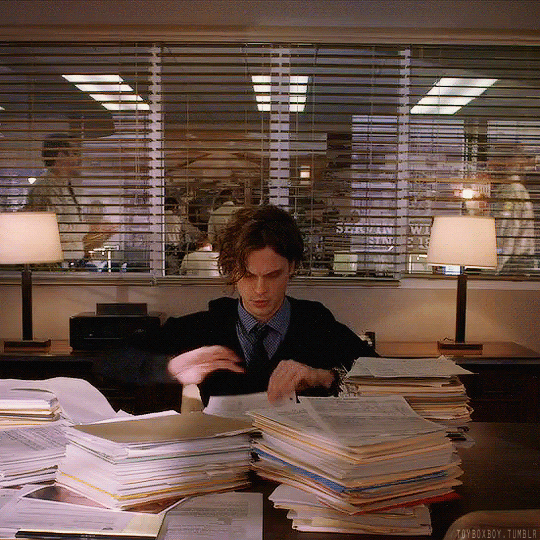
1. Do let the audience follow the character’s thought process.
As demonstrated by: Tommy Shelby from Peaky Blinders
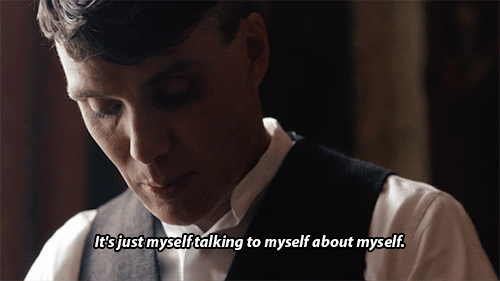
Albert Einstein allegedly once said, “If you can’t explain it to a five-year-old, you don’t truly understand it.” And the sentiment rings true: true genius doesn’t need to dazzle with big words and technobabble. Instead, it makes the complex appear simple.
The same rings true for brilliant characters. BBC’s Sherlock (more on that later) ceased to satisfy in its later seasons because it began to rely too heavily on visual glitz to avoid actually explaining its mysteries and how they were solved. Similarly, the biggest complaints with block buster franchises -- Star Wars, The Avengers, Game of Thrones -- is that they became obsessed with “subverting expectations” cleverly instead of leading the audiences to their most logical and satisfying conclusions.
Meanwhile, the smartest and most satisfying media dazzles not by staying over the audience’s head, but by illustrating how simplistic the solutions can be.
Let’s start with my boy Tommy Shelby, the charismatic, swaggering protagonist of the charismatic, swaggering crime drama Peaky Blinders. Using only his intelligence (and complete disregard for his own life/suicidal tendencies, but that’s not the point here), Tommy claws his way up from the near-bottom of the social ladder (an impoverished Romani in early 20th century Birmingham) to being a decorated war hero, to being the leader of a feared razor gang, to dominating the race track business, to becoming a business mogul, to becoming a member of parliament and trying to assassinate the leader of the fascist party. He’s also one of the paramount reasons why I’m bisexual.
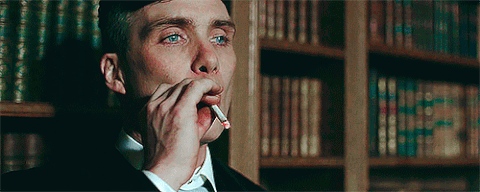
So how can such a drastic social climb be conveyed believably? Because Tommy -- as the viewpoint character -- is placed in seemingly inescapable situations, and then proceeds to demonstrate that the solutions to those situations have been there the whole time. I recently watched a brilliant video on how this is done, which can be viewed here.
Early in season one, for example, he responds to aggressive new methods by the police by organizing a mass-burning of paintings of the king, and uses the press this garners to publicly shame the methods of the chief inspector who’s been antagonizing him. In the next season, he talks his way into a deal by bluffing that he planted a grenade in his rival’s distillery. My personal favorite is in season four, when he responds to being outgunned by a larger, American gang by contacting their rival -- none other than an Alphonse Capone.
All of Tommy’s victories are satisfying, because they don’t come out of nowhere -- we have access to the same information he does, each victory is carefully foreshadowed, and we are reminded at every turn that failure is a very real possibility (more on that later.) So when he wins, we’re cheering with him.
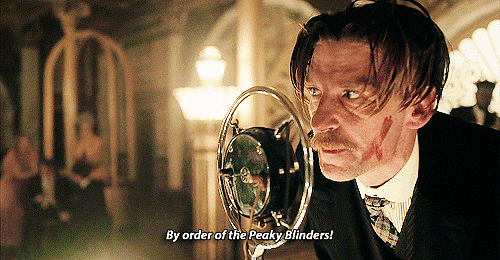
Other examples: Mark Watney from The Martian, who explains science in its most simplistic terms and with infectious enthusiasm. He would make every character on The Big Bang Theory cry.
Also, Miss Fisher from the AMAZING Miss Fisher’s Murder Mysteries. The dazzling, 1920s, female Sherlock Holmes of your dreams. I cannot recommend it enough.
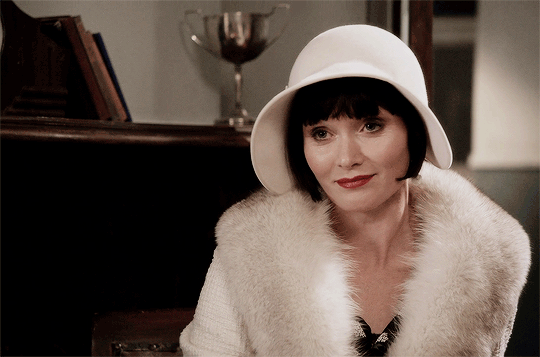
To apply this to your own writing: Remember you won’t dazzle anyone if you smack them in the face with a “brilliant” plot twist. They want to take a journey with your character, not be left in the dust.
Also, for everyone in my askbox concerned that they’re not smart enough to write intelligent characters, just remember how simple the problems confronting smart characters can be. Put them in a difficult situation, and provide them with a means of getting out. Then, just let them find it.
2. Don’t assume the audience is too stupid to keep up (or try to make them feel too stupid to keep up.)
As demonstrated by: Sherlock Holmes from BBC’s Sherlock.
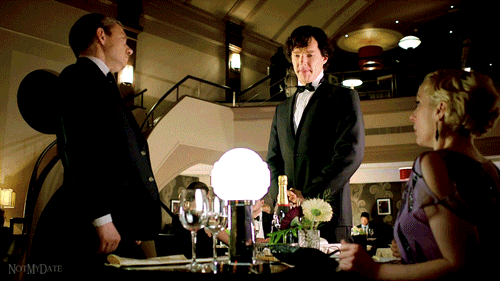
Say what you will: there were reasons why everyone was so captivated by this show during its first two seasons. It felt fresh. People had yet to become frustrated with the inescapable thirst for Benedict Cumberbatch. The writing was sharp, and the editing clever. And it wove a tantalizing web of mysteries that demanded solution. The problem was, there weren’t any.
The most frustrating for many was how Sherlock faked his death at the end of season two, after which devoted fans spent two years creating intricate theories on how he might have pulled this off. The creators responded by mocking this dedication in the opening episode of season three, by showing a fan club spinning outlandish theories (one of which included Sherlock and Moriarty kissing.) This might have been laughed off -- at the time, many seemed to consider it quite funny -- if the creators had bothered to offer their own explanation of how Sherlock survived. They didn’t. And so began a seemingly endless loop of huge cliffhangers that promised -- and consistently failed to deliver -- satisfying answers.
The most egregious examples occur in season four, which provided answers to questions no one asked, and withheld answers for things everyone wanted to know. For example, did you know that the real reason Moriarty engaged Sherlock is because he was hypnotized by Sherlock’s secret evil sister? The same one who killed Sherlock’s best friend, whom Sherlock convinced himself was a dog? Yes, that was a real plot point, in the climax of the series. It’s an effort to befuddle the audience with brilliant and unexpected writing, but instead pulled them out of a story they were already invested in and made them far more critical of its pre-existing faults.
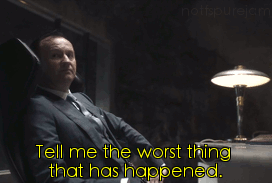
It’s pointed out in the brilliant (if bluntly named) Sherlock Is Garbage, And Here’s Why that Moffat can be a great writer, but is a consistently terrible show runner, because he’s more interested in dazzling the audience with cleverness than actually telling a satisfying story. The video also points out that the show often implied Sherlock’s brilliance, without ever letting the audience follow along with his actions or thought-process in a way that DEMONSTRATED his brilliance.
I highly recommend giving the aforementioned video a watch, because it is not only a great explanation of how Sherlock Holmes can be best utilized, but about how writing itself can be best utilized.
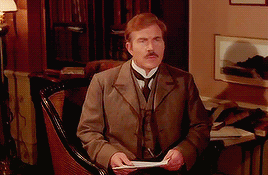
Other examples: The Big Bang Theory. As Wisecrack points out in their wonderful video on the subject, the punchline of every joke is “oh look, these characters are smart nerds!” which is repetitious at best and downright insulting at worst.
How to avoid this in your writing: Treat the audience as your equal. You’re not trying to bedazzle them, you’re trying to take them on a journey with you. Let them be delighted when you are. Don’t constantly try to mislead them or hold intelligence over their head, and they will love you for it. Also, cheap tricks do not yield a satisfying story: readers will know when you went into a narrative without a plan, and they won’t appreciate it.
3. Do remember that smart people can be kind and optimistic!
As demonstrated by: Shuri from Black Panther.
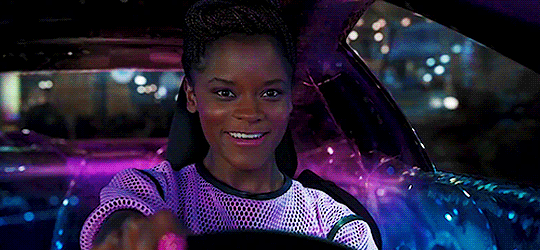
Yes, brilliant people can be unhappy and isolated by their intelligence, or rejected by society. But remember that intelligence isn’t synonymous with a cantankerous attitude, or an excuse to be a pugnacious ass to those around you!
Part of the reason why Shuri of 2018′s Black Panther was such a breath of fresh air was the fact that she subverted almost all preconceptions about how a genius looks, acts, and regards the world. And it’s not just the fact that she isn’t a sullen, middle-aged white man that makes her stand out: Shuri has an effervescent attitude, and genuinely loves contributing to her country and family. She referred to sound-proof boots as “sneakers” (and then explained the pun when her brother didn’t get it.) She’s fashionable. She teases her older brother, and cries when he is apparently killed. She’s up on meme culture. This makes her unlike pretty much every other genius portrayed in the MCU.
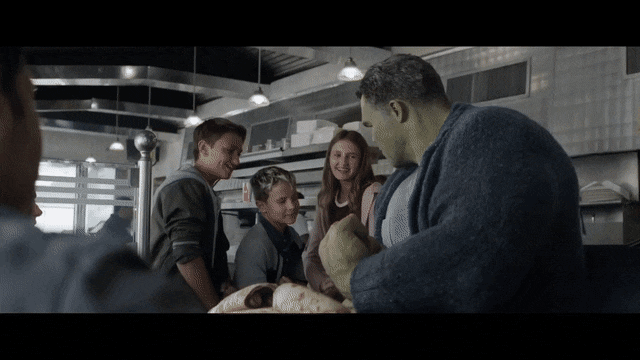
Except maybe the Hulk. He can dab now.
Shuri is also allowed to take pride in her genius, and can be a bit insufferable about it, which makes her more enjoyable and rounded. But she is an excellent example of how genius can be explored and portrayed in fiction, and I will forever be embittered that she was underutilized in Infinity War and Endgame.
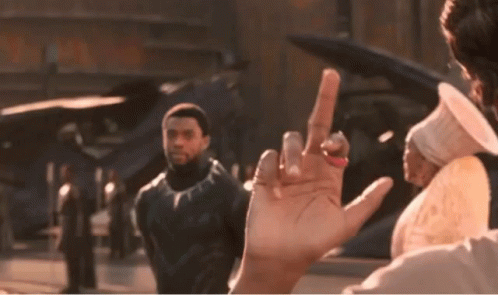
Why, for example, are all geniuses portrayed as arrogant misanthropes? Albert Einstein battled depression, but he is also said to have enjoyed blowing bubbles and watching puppet shows. He was kind to those who knew him. Similarly, Alan Turing behaved little like his fictional counterpart, described as “shy but outgoing,” with a love of being outdoors. Nikola Tesla fell in love with a pigeon. Why do we have to portray these people so damn gravely?
Other examples: Spencer Reid from Criminal Minds. Also an excellent portrayal of an intelligent person on the autism spectrum, as he struggles to interface socially but cares profusely for his fellow human beings. He is brilliant, and completely precious.
Also, Sherlock Holmes -- the original version, and all faithful adaptations thereof. Anyone who thinks Sherlock is an austere, antisocial jerk isn’t familiar with the original canon. He blushed when Watson complimented his intelligence, for God’s sake.
Then there’s Elle Woods from Legally Blonde and Marge from Fargo. Brilliant, upbeat, optimistic geniuses.
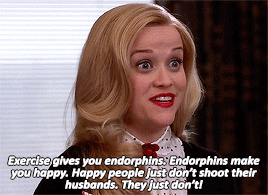
To apply this to your own writing: If you have a smart character who hates everyone around them for no identifiable reason, ask yourself why this is necessary and what this adds to the plot. Are they angry about injustice, towards themselves or others? Are they frustrated with an inability to relate to people? Do they want to protect themselves or their family at all costs, including politeness? If not, question why your brilliant character can’t also be kind to those around them.
4. Don’t make your character perfect at everything they do.
As demonstrated by: Wesley Crusher from Star Trek: The Next Generation.
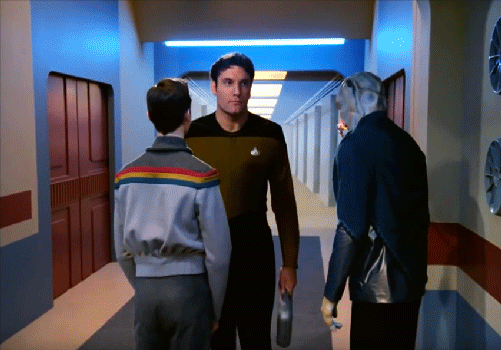
Ah, Wesley. Some call him the original Mary Sue, and it’s one of the only times I’ve seen the term applied with some accuracy. He is somehow the most gifted and least qualified person on The Enterprise. He’s Hermione Granger without the charm, jumping in to answer questions before any of the trained officers in the room have the chance to, always in the right. His only obstacle? Why, the boorish adults he’s surrounded with simply don’t understand his brilliance!
As early as the series’ very second episode, Wesley -- inebriated by an alien illness -- forcibly takes over the ship from Captain Picard, only to later save it from a threat with a reverse tractor beam of his own design.
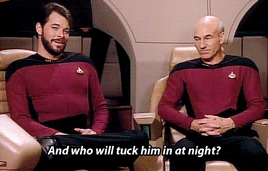
Wesley was obviously inserted as a means of attracting younger viewers, but failed egregiously, because he was too annoyingly perfect for kids to relate too, and not cool enough for them to be invested in. I binge-watched the various Star Trek series in my youth for Spock, Data, and my wife Seven of Nine, not to watch seasoned military and scientific officers get lectured by an adolescent. Even Wil Wheaton, who had the misfortune of portraying this character, expressed a dislike for him.
Precocious children are great, if you get them right. But get them wrong, and they can easily become your most annoying character, marring the face of otherwise great media. The most important thing you can do for a brilliant character is endow them with weaknesses and flaws -- even something as small as Shuri’s fondness for teasing her older brother made her enjoyable, as anyone with siblings could relate to their dynamic.
But, what if you want a supernaturally talented character who not only fails to be a ray of sunshine, but is something of an arrogant, antisocial jerk? Can they still work, especially if they also happen to be a child?
Yes, under one extremely important condition:
5. Do keep your characters out of their depth!
As demonstrated by: Number Five from Umbrella Academy.
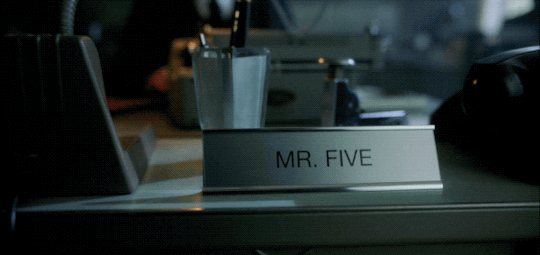
Okay, he’s not exactly a child. He’s a fifty-eight-year-old trapped in a child’s body, who’s traveled back in time from a post-apocalyptic future to warn his siblings of an incoming Armageddon. In other news, Umbrella Academy is a weird show. Unlike the comics, however, the apes don’t engage in prostitution.
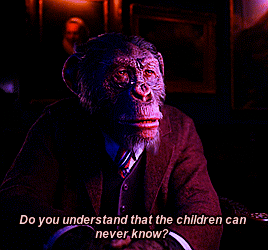
The effect, however, remains the same: a preternaturally talented child who talks down to everyone around him, including his (apparently) older siblings. So why does he work while Wesley fails so egregiously?
For one thing, it’s demonstrated early on that Five has the skills to back up his sanctimonious attitude, with the delightfully ultraviolent Istanbul (Not Constantinople) sequence. It also helps that he lacks Wesley’s squeaky-clean moral code, to the point at which he can get drunk in public or kill without remorse.
But: the element most vital to his success as a character is the fact that he’s kept completely, and consistently, out of his depth. He knows the world will end in eight days, but he doesn’t know how this will transpire or how to stop it. Ultimately, he fails again to stop the apocalypse, and must travel back in time with his siblings for another chance.
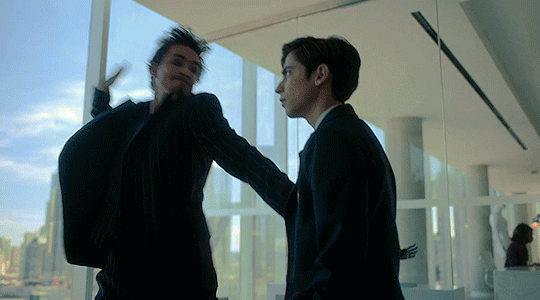
Most authors have the impulse to demonstrate a character’s brilliance by allowing them to succeed against insurmountable odds, but the Umbrella Academy writers show tremendous wisdom in allowing Five to fail. This allows the audience to empathize with him, and countermands the effects of his arrogant attitude.
This advice isn’t just true for pint-sized prodigies. Look back over this list, and take notes of how often the most successful characters are allowed to fail, to have flaws, and to ascend past their comfort zone.
Other examples: Virtually every successful example on this list.
Tommy Shelby, a character of limitless ambition, conducts a new, perilous climb outside of his social rank each season, which almost always puts him in positions of mortal danger. He faces threats both external (rival gangs, evil priests, and rising fascists) and internal (hello PTSD, suicidal tendencies, and crippling addiction) but either way, we understand that his fast-paced climb is not for the weak-willed or faint-hearted.
Mark Watney is a brilliant scientist who has been stranded in an utterly impossible situation for which absolutely no one could be adequately prepared (spoilers: it’s on Mars.) We are drawn in by his plight, and how he could possibly escape from it, and there we come to admire him for his courage, optimism, and humor.
Shuri, though not the main character of Black Panther, is allowed to show off both tremendous gifts and vulnerability, as she is powerless to stop the apparent death of her beloved older brother. She watches Wakanda’s takeover both as an innovator and a young woman, and a large reason for her success is that she is allowed to be both.
How to apply this to your writing: When portraying intelligent characters, take stock of how often they fail, their level of control over their surroundings, their vulnerability, and their flaws. We don’t want to read about flawless deities. We want to read about characters who embody and personify our humanity. So remember they need to fall down in order to pull themselves up.
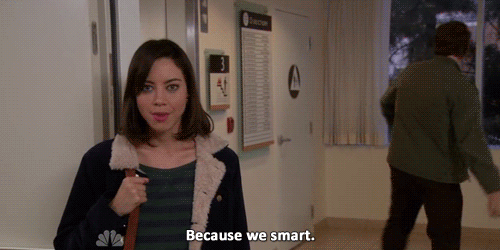
Happy writing, everybody!
#long post for ts#writing tips#writing smart characters#peaky blinders#tommy shelby#mark watney#the martian#miss fisher's murder mysteries#shuri#black panther#spencer reid#criminal minds#legally blonde#fargo#number five#the umbrella academy#star trek#star trek: the next generation
917 notes
·
View notes